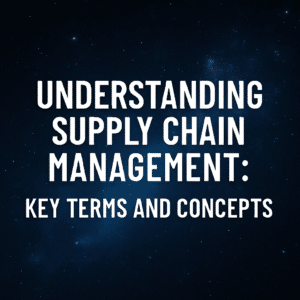We are on the brink of a new technological age. With artificial intelligence (AI) emerging, we can expect great changes in how technology is used and how it affects our lives. If you’re in the IT sector, you’re likely familiar with the abundant impact this modern technology can have on the productivity of our world today. However, if you’re looking in through the window, it’s a natural feeling to feel threatened by new technology.
The same fear-filled eyes were prevalent in the ’70s and ’80s when computers were created and became mainstream. There was a worry that all it would do is eliminate jobs and be a power play by corporations to make more money. In reality, it created an entirely new sector full of new jobs in IT, digital transformation, and surrounding practices. The truth is, it’s always better to embrace change and look for the positive in the new emerging technologies to come.

Table of Contents
ToggleHere are the top three reasons you should be looking forward to artificial intelligence in technology.
AI Can Enable Better Decisions
Artificial Intelligence has the ability to improve our decision-making process. With its vast data-gathering and analytical abilities, AI can help us make better decisions by providing us with more accurate information. It can help us extract stories from data that would otherwise take a long time or would be easy to overlook.
For example, imagine you are a doctor trying to diagnose a patient’s illness. With AI, you would have access to the medical records of all patients with similar symptoms, which would allow you to more accurately diagnose the illness. Having access to information without having to do a Google search has the power to revolutionize various fields beyond just medicine.
AI Encourages Strategy Rather than Execution
You know those mundane tasks that take forever, that in all likelihood you hate doing anyway? AI can help us automate those repetitive tasks. Many of the tasks we perform on a daily basis are repetitive and can be easily automated by AI. For example, if you are a customer service representative, you likely spend a lot of time answering the same questions over and over again. With AI, you could have a chatbot that answers these questions for you so that you can focus on more important tasks such as escalations.
This also leaves room for employees to be creative and come up with strategies rather than being bogged down by the execution. In today’s business world, creativity is key to success. With AI taking care of the mundane tasks, employees will be able to focus on being creative and coming up with new ideas.
AI Opens Up New Job Opportunities
While it’s true that AI will automate many jobs, it will also create new job opportunities. As we’ve seen with previous technological advances, there will be a new demand for jobs that are related to AI. For example, we will need people to design and oversee artificial intelligence systems. We will also need people to interpret the data that is collected by AI. So while some jobs may be lost, many new opportunities will be created.
AI Can Help Us Connect With Others
AI can help us connect with others in a way that is more personal and intimate. For example, there are now AI-powered chatbots that can hold conversations with people. These chatbots are designed to understand human emotions and respond accordingly. This means that you can have a conversation with a chatbot that feels more like a conversation with a friend than a traditional conversation with a computer.
In addition, AI can help us connect with others by giving us access to information about them that we would otherwise not have. For example, imagine you are meeting someone for the first time. With AI, you could have access to their social media profile so that you can learn more about them before you even meet them.

Beyond Business, Artificial Intelligence Can Help Improve the Quality of Life on a Larger Scale
It goes beyond the automated workflows and optimized efficiencies. Artificial intelligence has incredible potential to improve the world around us by reducing crime, protecting the environment, and even reducing the time we waste in traffic. Here are a few more examples.
Protecting the Environment
AI can help us protect the environment in a number of ways. First, AI can help us identify environmental problems before they become too big to handle. For example, AI-powered sensors can detect pollution and accidents before they happen. This information can then be used to prevent these accidents from happening in the first place. For example, if a sensor detects that a chemical plant is leaking, the AI can notify the authorities so that they can take action to prevent an accident.
Improved Agriculture
In addition, AI can help us conserve resources by optimizing our use of them. For example, imagine you are a farmer trying to conserve water. With AI, you could have access to information about the weather and the soil so that you can optimize your irrigation system. This would allow you to use less water while still producing the same amount of crops.
A World with Less Crime
AI has been found to be very successful in predictive policing. By analyzing data, artificial intelligence can predict where and when crimes are likely to occur. This information can then be used by police forces to deploy resources more effectively and prevent crime before it happens.
Reduced Traffic Congestion and Accidents
Traffic is a huge problem in cities all over the world. AI can help by reducing congestion and accidents through a number of methods such as intelligent routing, adaptive traffic control, and automated cars.
Improved Healthcare
AI is being used in a number of ways to improve healthcare. It can be used for things like diagnosing diseases, developing new drugs, and improving medical images. This means that we can expect better healthcare for everyone in the future. AI could even enable healthcare solutions and even surgical operations in developing countries leveraging robotics and AI together. This is already something Google has been exploring, and will likely be leveraged in the coming decade to improve healthcare options in third-world countries.
If you have questions about digital transformation or how your organization could benefit from leveraging AI technology, please don’t hesitate to reach out to us. We are always happy to be an informal sounding board as you embark on your digital transformation journey.





